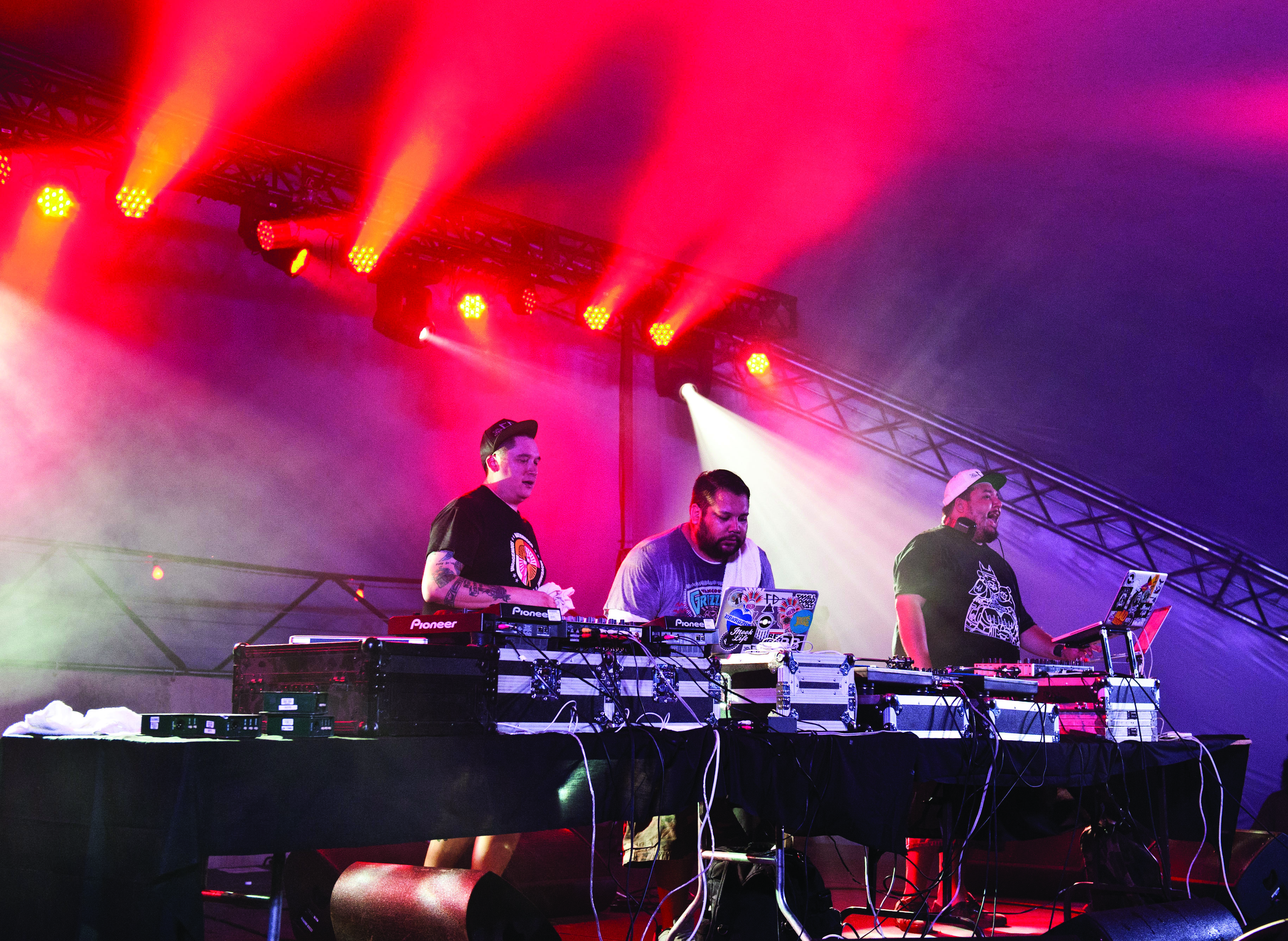Since its inception some 40 years ago, the Winnipeg Folk Festival (WFF) has transcended the boundaries of what might be thought of as the archetypal “music festival” by bringing together artists of every genre to celebrate music and art in the beauty of Birds Hill Park.
This year the band A Tribe Called Red brought their urban sounds to the Big Bluestem stage for a collaborative workshop with bands Afro Kumbé Sound System and Blue King Brown. In the evening of the same day, A Tribe Called Red transformed the Big Blue @ Night stage through what they describe as “electric powwow” music.
Earlier that day as a volunteer, I had the opportunity to speak to and ride the Folk Fest shuttle with members of A Tribe Called Red. After first listening to their latest album Nation II Nation, I was blown away by the craftsmanship and artistry of the Polaris Music Prize nominee finalists.
DJs Shub, NDN, and Bear Witness synthesize traditional Aboriginal powwow drumming and singing with contemporary hip hop, reggae, and electronic music. DJ Bear Witness and I shared a seat while he relaxed and played some video games on the ride out. I spoke to him somewhat awkwardly and candidly about how I was in a sense afraid to be a fan of A Tribe Called Red. As absurd of a statement as this is he was not at all deterred and continued to listen with much affection and patience to what I was trying to articulate.
“When I heard your band name, with what I’d learned about Aboriginal culture, and ‘tribes,’ and the racial connotations of the word ‘red,’ I had this chip on my shoulder, like, ‘Oh, here we go, Aboriginal political music that will be preachy or something.’”
I kind of trailed off expecting some sort of angry response, but instead I got a smile and a nod of understanding from Bear. I continued, “But after I heard your album I was blown away. You rewrote my history books; you changed what I had thought I knew about Aboriginal music and culture.”
In a recent interview published in the Huffington Post, band member DJ NDN asked non-Aboriginal fans to not wear Aboriginal headdresses or costumes to their shows. A Tribe Called Red incorporates traditional drumming and singing, as well as the visuals of what some might perceive to be the stereotypical pop culture iconography of “the Indian” during their performances.
The Huffington Post asked DJ NDN why it was acceptable for a First Nations person to wear traditional Aboriginal garments but not for certain demographics (read: non-Aboriginal) fans to do so as well. Speaking as a fan that witnessed A Tribe Called Red perform at this year’s WFF, it’s clear to me why it would not be appropriate to dress up in “Indian costume.” To do so would be to commit cultural appropriation and what the group referred to in their interview as “Pan-Indianism”: the tendency to ignore distinct First Nations cultures and lump all into one homogenous group.
To mime a culture in this way would be regressive rather than progressive in what I perceive A Tribe Called Red to be articulating through their music: their own story, a story of their people.
Honouring their own heritage but allowing people of all backgrounds to participate in the electric powwow, A Tribe Called Red killed the pop culture understanding of “the Indian” at this year’s WFF – both through music and performance.




